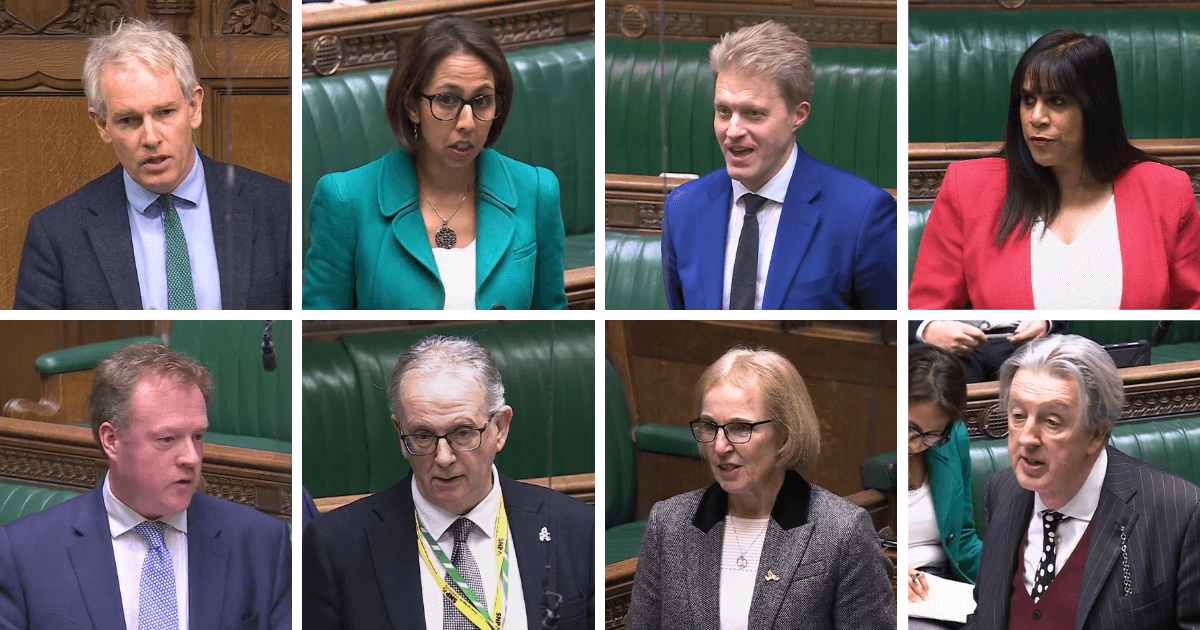A number of MPs have suggested that, before Parliament considers the question of assisted suicide, there is an urgent need to improve the provision of palliative care, which MPs described as having a “crisis in funding”.
In explicit reaction to Kim Leadbeater’s assisted suicide Bill currently being debated in Parliament, MPs gathered in the Commons Chamber to debate the provision of hospice and palliative care. Liberal Democrat MP Paul Kohler, who led the debate and voted against the assisted suicide Bill in November, said it was time “to address hospice funding for the provision of palliative care”.
Assisted suicide available on the NHS but not good palliative care
MPs used the opportunity to point out that if the assisted suicide Bill is passed, we could be in a situation where assisted suicide is fully funded by the NHS but good palliative care is not.
The Liberal Democrat MP Munira Wilson, who also voted against the assisted suicide Bill, said “We cannot be in a position where assisted death is available universally on the NHS to those identified in the Bill, but access to good palliative care is not. That is what grated with me most and why I could not walk through the Aye Lobby that day”.
Gregory Stafford referenced similar concerns when he said “I echo some of the comments we have heard: let us get palliative care and hospice care right first, before we start thinking about whether or not we should be allowing people to kill themselves”.
SNP MP Seamus Logan criticised the Government for what he described as an “assault on the very concept” of hospice care. “Perversely, this Government have introduced additional employer national insurance contribution charges on the independent hospice sector, which can only be described as an attack, an assault on the very concept of assisted dying as we currently deliver it—for that is what hospice care is and does, and what others who deliver palliative care in the independent sector within the community do”.
Focus on living well not on assisted suicide
Some MPs welcomed this debate as an important turn of emphasis to palliative care and a good death as opposed to state assistance in suicide. Stafford said the “one good thing to come out of the assisted dying debate has been a much greater focus in this House, and indeed across the country, on what it means to die well”.
Dr Ben Spencer, who voted against the Bill, made similar comments saying “While I am pleased that the assisted dying Bill has led to a renewed interest in hospice and palliative care, I am sad that so much of the focus has been on death and the dying process, rather than on the broader support and care offered by hospices and palliative care providers— sometimes over many years—to people who have illnesses that may be life-limiting, and who require certain types of medical intervention to manage their symptoms”.
Palliative care is a postcode lottery
Other MPs such as Sureena Brackenridge, Munira Wilson and Susan Murray used the debate as an opportunity to highlight the lack of access to palliative care in certain parts of the country. Wilson urged Ministers “to take genuine action to address both the geographic disparities and the deep inequalities that exist in accessing palliative care”.
Brackenridge also drew particular attention to this problem saying “The crisis in funding, and the postcode lottery and health inequalities faced by many families, particularly in accessing hospice and palliative care, weighed heavily on my decision to vote as I did in the debate on the assisted dying Bill”.
When assisted suicide is made legal, the quality of palliative care declines
Danny Kruger, one of the most prominent and outspoken voices against the assisted suicide Bill, argued that “[s]tudies and research show that in jurisdictions and countries around the world that have introduced an assisted dying/assisted suicide law, the investment in and the quality of palliative care has declined, relative to those that do not have an assisted dying/assisted suicide law. That is for reasons that are fairly comprehensible. That is a fact. I implore the House: let us fix our palliative care system before we consider opening up the law on assisted dying”.
Committee stage for Leadbeater’s assisted suicide Bill will begin this week before it undergoes Third Reading.
Spokesperson for Right To Life UK, Catherine Robinson, said “It is indeed deeply concerning that we, as a country, could be facing a situation where assisted suicide is fully funded through the NHS but palliative care is not. Supporters of assisted suicide say they are in favour of ‘choice’ at the end of life, but if one of the choices, in this case, palliative care, is prohibitively expensive, this is no choice at all”.
“MPs should recognise this as yet another reason why they should vote against this dangerous Bill that would facilitate and thereby encourage a certain segment of the population to end their lives”.












